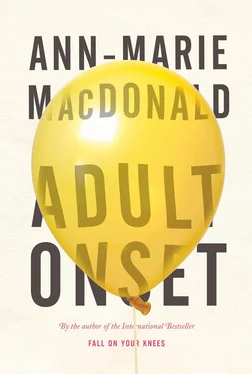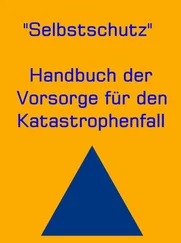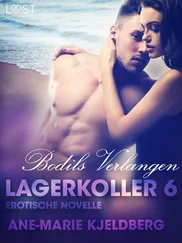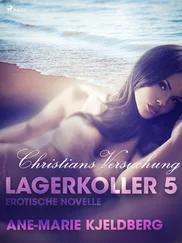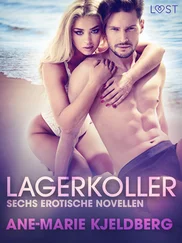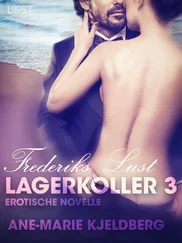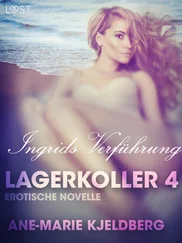From the hi-fi issued sounds of impending battle, a massed drum roll heralding a blast of bagpipes.
Duncan taped an orange cross on the glass at toddler-eye level. Dolly turned the raw kibbeh onto a serving platter, mounded it smooth and imprinted a crucifix with the edge of her hand. “In the name of the Father!” she intoned, raising her other hand in the sign of the cross and looking like the conductor of an orchestra. Duncan lowered the volume on “The Massacre at Glencoe” and they gathered round the dining table, Matthew on his booster seat, Maggie in her high chair.
She watched as Dolly, in accordance with long custom, stood and dismembered the chicken by hand, tearing a wing from the bird and offering it to her. “You don’t want the wing? No — Maureen’s the one who likes the wing, Hilary, do you like the wing?”
“Sure, Dolly.”
She plopped the wing onto Hil’s plate.
“Einmal wein, Fraulein?” said Duncan, graciously pouring Liebfraumilch into Hil’s glass — a medium-sweet German white wine to accompany raw kibbeh to the tune of muted Highland outrage.
The table was groaning, Dolly had somehow managed to make tabbouleh along with everything else. Now she was pouring powdered milk for the children from a recycled tomato sauce bottle.
“Mum, there’s real milk in the fridge, I brought some—”
But Matthew drained his glass and held it out for more, while Maggie sucked hers back two-fisted from a sippy cup.
“Is that what happened to your arm?” asked Dolly.
Mary Rose felt her stomach drop. “What do you mean, Mum?”
“Where’s the chow chow?” asked Duncan, looking up suddenly.
“What do you want chow chow for?” asked Dolly.
“For the kibbeh.”
“You don’t eat chow chow with kibbeh,” cried Dolly, “that’s a desecration!”
Duncan gave his grandson a crafty smile. “Eat it all up now, Matthew, it’ll put hair on your chest.”
Mary Rose caught Hil’s eye. Had her father not heard what her mother had just asked her? Mixing up a balcony with a patio door in a moment of fear was understandable, but for her mother to forget that Mary Rose had had bone cysts … Unless he was in denial. Or keeping something from her and her siblings — a diagnosis … Alzheimer’s . She felt the old gluey sensation stir in her esophagus at the mere thought of speaking the word. But if she allowed her mother’s question to be derailed by her father, she would be enabling the family dynamic of denial and suppression.
“I had bone cysts, Mum. Remember?”
“Of course I do, dear, I’m your mother.”
Relief. No need to ask her father anything point-blank, they could stick to neurology and the cosmos. She reached for the Liebfraumilch. Her parents’ wineglasses were small, in keeping with their generation — having grown up during the Great Depression when a whole family shared one pair of shoes, a china cabinet full of 1950s stemware must have looked like Versailles — thus she calculated she was really still on her first glass of wine.
Maggie had green potatoes in her hair, Matthew was somehow already in possession of a bowl of chocolate ice cream. Duncan was regaling Hil, “I remember Gordie Howe’s last game at the Montreal Forum …”
Was it the familiarity of the story her father was telling? Or the conflation of a patio with a balcony door, slabs of time jammed up against one another like ice on Lake Ontario … They were eating at the very table at which she had sat so often while her mother cursed her and her father sat by, eyes on the ceiling. It had served as the kitchen table back before her parents downsized. Light being what it is, those scenes were still being played out somewhere … Only time separated those events from this one. Twenty years ago, in this very seat, she was shell-shocked.
“… The place was packed to the rafters, and Howe was going full tilt down the ice …”
Hil was smiling with the blank politesse of the good daughter-in-law.
“Dunc,” said Dolly.
“And he started passing the puck from his stick to his skate, then from his skate to his other skate, then back to his stick, and he kept this up without breaking stride …” His blue eyes were hot, his smile taut.
“Duncan, dear—”
“And that crowd — now you have to understand, Montreal was a tough crowd, still is — well, that crowd got to its feet and gave Howe a standing ovation.”
Mary Rose saw his gold tooth, but he did not have long to savour Howe’s triumph, for Dolly broke in, “Dunc, was it the Rh factor?”
He blinked as though surfacing from a nap. “Was what?”
“Mary Rose’s arm.”
“No, no, no, you’re confusing the two. The Rh factor has to do with blood type.”
“Then what caused the bone cysts?”
“Nothing, you’re born with them.” He tipped the bottle over Hil’s glass but it was empty.
“I wasn’t good at having babies.”
“Mum, that’s not true.”
“Does your arm ever bother you now?”
“No, Mum.”
“Mumma was good at having babies.”
“Dad, is that why you got scared when I went to grab Maggie by the arm?”
He appeared to consider this. “Now that would make sense. Knowing what we know now, about how your arm would have been fragile all along … I guess I had that in the back of my mind.” He looked up with a chuckle. “Tell you the truth, though, she’s so much like you, I was worried she was going to run right out onto the balcony and keep goin’ over the side.”
Mary Rose exchanged another look with Hilary. She ought to stop obsessing over every little slip-up of her mother’s and accept the fact that both her parents were damn old and had every right to be forgetful.
“Was it before or after Mumma died that you gave me the moonstone, Dunc?”
“I think it was before,” he said casually, applying himself to the vigorous rearrangement of his mashed potatoes.
“Did she die before or after we lost Alexander?”
He set down his fork and employed the soft-pedal version of the expository tone. “It was before . I gave you the moonstone when Alexander was born. Afterwards, I took you for a few days to the Alps and that’s when we got word about your mother.”
“Doesn’t that mean it was … after?” asked Mary Rose.
“After what?” he asked.
“So … what year would that have been?” Was she drunk?
“It was after the Missile Crisis, so — no. Sorry, my mistake.” His tone was meticulous but good-natured. “I’m confusing it with the Bay of Pigs.”
Dolly turned to Hil. “We went up the Zugspitze on a cable car and there was no toilet at the top, can you imagine that?!”
“I don’t have to imagine it,” said Duncan with a rueful grin, “I was there.”
Hilary said, “Dolly, it must have been terribly hard to be so far away from your own mother at that time. And then to lose her too.”
“Oh it was, dear, it really was! And Hilary, you would know, wouldn’t you, doll, you must miss your mother terribly.”
Hil nodded.
Dolly continued, “She was a lovely lady, I was right fond of Patricia, and you know how proud she was of you, Hilary. I think Maggie looks a little like her, do you see it too?”
Hil began to cry. Mary Rose made a move to take her hand but knocked over her wineglass. Dolly rose and embraced Hil. “She’s with you, dear.” She spoke quietly. “She’s looking after you. And you know, you might find she’s taking care of you now in ways that she couldn’t when she was here.” Hil buried her face in Dolly’s shoulder.
“Mummy, what’s wrong?” asked Matthew. He now had a full chocolate beard.
“Nothing, sweetheart.” Hil blew her nose on her napkin. “I’m fine, I just miss Gran.”
Читать дальше
